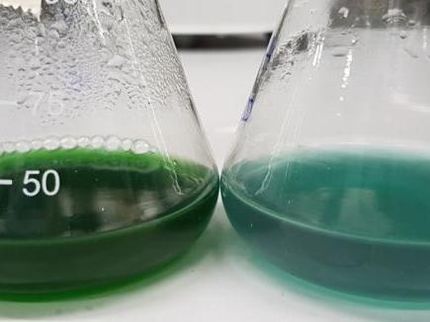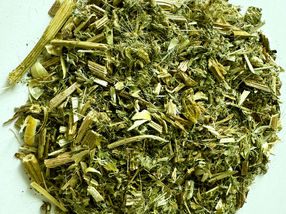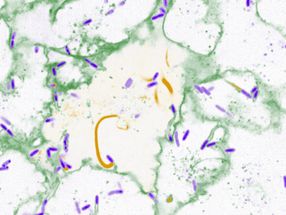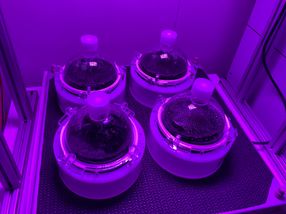Engineering bacteria to design vaccines
Combining gene engineering and biotechnology to design a veterinary vaccine chassis based on the bacterium Mycoplasma pneumoniae
The EU-funded MycoSynVac project combines gene engineering and biotechnology to design a novel veterinary vaccine chassis based on the bacterium Mycoplasma pneumoniae.
- By combining their systems biology expertise with cutting-edge synthetic biology methodologies, researchers will engineer a universal chassis, which will be free of virulence and optimized for fast growth in a serum-free medium.
- This chassis will be used to create specific vaccines against two highly detrimental pathogens that are causing suffering in livestock animals and large financial losses to the animal industry. The chassis will also set the basis for other potential applications, such as for cell therapy and infectious lung disease treatment.
- MycoSynVac is a 8 M€ H2020 EU project coordinated by scientists at the Centre for Genomic Regulation in Barcelona (Spain) and with participation of industrial and academic partners in The Netherlands, France, UK, Germany, Denmark and Austria.
The Mycosplasma bacteria are the smallest self-replicating organisms. They lack a cell wall, making them resistant to almost all antibiotics, and infections caused by Mycoplasma in livestock result in annual multimillion euro losses in Europe and throughout the world. Although there are vaccines against two species of Mycoplasma that affect pigs and poultry, no vaccines exist for many Mycoplasma species that affect not only livestock but also pets and humans.
The new H2020 EU project MycoSynVac aims to bio-engineer Mycoplasma pneumoniae into a universal chassis for vaccination by using cutting-edge synthetic biology methodologies. "We will engineer a new bacteria to be used as a vaccine, explains Luis Serrano, director of the Centre for Genomic Regulation (CRG) and co-coordinator of this project. "We will remove the genes that make the bacteria pathogenic and the improve the chassis for an optimized growth in a serum-free medium. By expressing specific harmless antigens from one or more pathogens, we will be able to create targeted vector vaccines. We have been working for a long time to deeply understand Mycoplasma pneumoniae and are now ready to take a step forward and use this knowledge for the benefit of society", adds Maria Lluch, staff scientist at the CRG and scientific co-coordinator of MycoSynVac. A second phase of this project includes targeting the development of attenuated (with the pathogen weaken but still alive) and/or inactivated vaccines (with killed pathogen) against M. hyopneumoniae, which infects pigs, and M. bovis, which infects cattle.
"This project pursues an ambitious challenge, and we recognize the importance of us taking into account not only its technical details but also its societal and ethical dimensions", agree both coordinators. To effectively address these highly diverse aspects, the project consortium is composed of: research groups working on gene engineering and design of biological systems at the CRG (Barcelona, Spain), the French National Institute for Agricultural Research (Bordeaux, France), the Wageningen University (Wageningen, The Netherlands), and the Imperial College (London, UK); a research group focused on the bioethical aspects the University of Copenhagen (Copenhagen, Denmark); industrial partners of MSD Animal Health (Boxmeer, The Netherlands) and ATG Biosynthetics, a biotech company working on functional bioinformatics (Merzhausen, Germany); and the risk assessment and public engagement company Biofaction (Vienna, Austria).
Most read news
Topics
Organizations
Other news from the department science

Get the life science industry in your inbox
From now on, don't miss a thing: Our newsletter for biotechnology, pharma and life sciences brings you up to date every Tuesday and Thursday. The latest industry news, product highlights and innovations - compact and easy to understand in your inbox. Researched by us so you don't have to.

























































